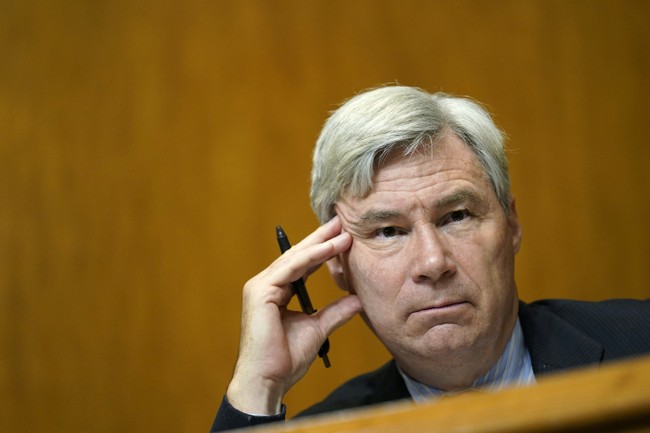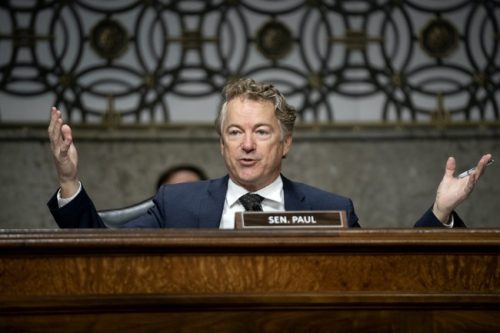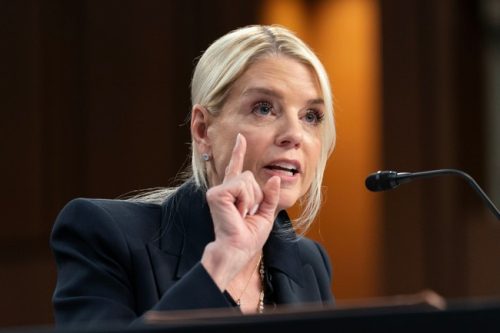The government shutdown fight has turned blunt and personal, with prominent Democrats openly admitting they are using the shutdown to extract policy wins while ordinary Americans feel the pain. Top Democrats — including Rep. Katherine Clark (D-MA), Sen. Chris Coons (D-DE) and Sen. Sheldon Whitehouse (D-RI) — have all signaled that forcing hardship on the public is the leverage they want. That admission changes the political frame: this is not accidental chaos, it is deliberate bargaining by one party. The GOP has a clear choice now about whether to stand firm or fold under pressure.
First, the facts are clear and uncomfortable: senior Democrats are admitting the shutdown is a tool to advance priorities like expanded benefits and funding for programs many voters oppose. Their open strategy removes plausible deniability and hands Republicans a messaging advantage. When the other side says the quiet part out loud, you point to it and ask why normal Americans should pay the price for political leverage.
RI’s @SenWhitehouse defends Dems shutting down the govt to try extracting concessions from Republicans: “It’s the only lever we have” (reporting from @NicholasBallasy) pic.twitter.com/826hIMhCZr
— Tom Elliott (@tomselliott) October 28, 2025
Democratic talking points about protecting people fall flat when those same leaders admit they plan to manufacture suffering to get concessions. The conservative case is straightforward: government should not weaponize basic services to force ideological wins. Voters notice who is willing to play hardball at the expense of grocery store lines, veterans services, and small businesses.
On the other side, Republican leadership faces pressure from members worried about lost legislative days and constituent frustration. Speaker Mike Johnson can brag about conference unity, but reports show multiple members pushing for a return from recess. Those private fissures are the risk point: if a handful of Republicans cave, Democrats will claim victory and keep pressing for big spending packages tied to reopening the government.
Speaker Mike Johnson is now up to more than a half-dozen known members pushing for the House to return from their month-plus hiatus.
On a private GOP call this afternoon, Rep. Dan Crenshaw (R-Texas) questioned how the House could make up for the lost days, a source on the call told us.
Why it matters: Johnson’s not wrong when he brags about his conference’s unity on the shutdown. But the cracks are growing.
Reps. Marjorie Taylor Greene (R-Ga.) and Kevin Kiley (R-Calif.) also raised concerns on the call about being on recess. They both have expressed opposition before.
The House last voted on Sept. 19, when it passed a short-term spending stopgap.
Reps. Thomas Massie (R-Ky.), Beth Van Duyne (R-Texas) and Jen Kiggans (R-Va.) have also called for the House to return, though not on today’s GOP call.
That blockquote shows the immediate danger: a handful of defections could undercut leverage and hand Democrats the outcome they want. The substance they’re seeking includes massive spending increases and policy riders that have no majority support outside their coalition. Republicans holding to a clean continuing resolution keep the government funded at the status quo levels and deny Democrats a ransom to expand new programs.
There’s a political calculus here that should push Republicans to keep discipline. The polling trend is favorable: most voters don’t want massive new spending or special carve-outs tied to reopening the government. When they hear Democrats admit that the crisis is intentional leverage, sympathy for the other side drops. That’s the moment to press the advantage rather than concede to manufactured demands.
Practical conservative strategy is simple: keep the continuing resolution clean, call out the leverage tactic, and force Democrats to defend their choice to make people suffer for policy goals. If Republicans yield to panic from a few lawmakers or noise from the press, they lose not just the immediate fight but credibility on fiscal restraint. Standing firm now prevents new entitlements and keeps the negotiation on terms voters understand.
Messaging matters, too. Point to the quotes, name the people, and explain to voters why this shutdown is different — it’s a planned gambit, not incompetence. Republicans who stay steady will look like guardians of normalcy; those who flinch will look like they allowed policy to be bought with people’s hardship. Hold the damn line, guys.
Editor’s Note: Donald Trump is America’s Peace Time President. Support and follow Townhall’s latest reporting on the president’s historic trip to the Middle East. Join Townhall VIP and use promo code POTUS47 to get 74% off your membership.






